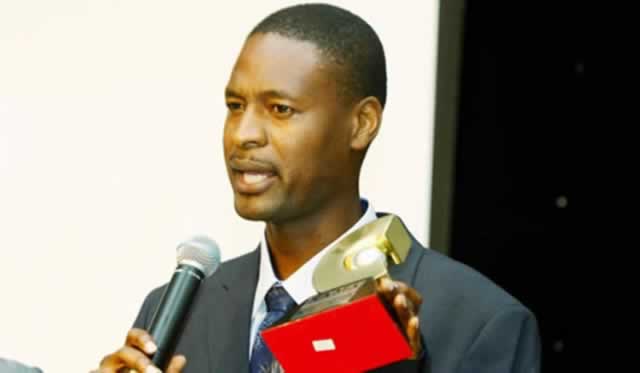Perhaps it is time to say goodbye to book writing


Enock Chihombori is one of the most gifted writers who has not benefited at all from his creative talents
Ignatius T. Mabasa Shelling The Nuts
In three years, I earned nothing from a book that has been a national school set text.
My publisher is fighting demons in the form of book pirates, photocopying technology and weak copyright infringement laws, and we are both victims, but of the two victims, I am worse off.
US poet Emily Dickinson once said, “the wounded deer leaps the highest.”
Today, I feel like that proverbial deer. Today, I try to answer a question that I have been asked many times by students and young writers.
It is a question that even some of my relatives think I do not answer honestly. The question is, “As a writer, are you rich?” Well, as far as being rich and having a great deal of money and assets from the writing industry — I am not rich. Some of you may say, “We thought writing is a hobby and not an industry?” Writing is an industry because when we write, we are engaged in an economic activity concerned with the processing of ideas into cultural products that are consumed by a paying public.
This means that under normal circumstances, writers and all creative people must earn something from their creative talents.
As a writer, I am not rich in the sense most people define richness.
The money and assets I have are from working as something else that has nothing to do with my creative talents. And, that is the reason why I am assessing the return on investment from my writing endeavours.
This is the reason why I am considering quitting writing books and book publishing until Government can guarantee and assure me that as an artist I am protected.
During the 2014 National Arts Merit Awards, I shared a table with Enock Chihombori and when he was announced winner for his film — Gringo the Troublemaker, instead of rejoicing, Chihombori wept uncontrollably before telling the nation that he had used family savings to produce the film, but he never benefited at all from his creative talents. The film was pirated and available on the streets before it was even launched.
Chihombori’s story reminded me of what happened when my first novel Mapenzi came out.
I discovered copies being sold at Mbare before the publishing company had even received the books from the printer.
Upon investigating the matter, it was discovered that the employees at the printing company had printed more copies than what the publisher had ordered, and those extra copies were the ones they were selling on the black market.
In 2011, my second novel became a Zimbabwe Schools Examinations Council Shona set text at Advanced Level. Today, four years later, I have not been paid for that book which was being studied in schools in 2011 and 2012.
When I asked my publisher two years ago, why I was not getting any royalties for a novel that was being studied in schools nationwide, I was told that the number of students studying Shona at Advanced level stage had significantly gone down.
I argued that, even if the number of students studying Shona at advanced level goes down, still there must be a few copies that have been sold.
At that point, my publisher informed me that they were fighting a big book piracy syndicate that had been photocopying and selling my novel.
I was told that some culprits had been arrested and that the matter was before the courts.
That was the last time I heard from my publisher.
I thought that even if the matter was before the courts, my publisher would keep me updated and also pay me for the few books that had been sold.
So, last month I went to see my publisher to find out what was happening. When I got there, the accountant apologised and told me that they had sent an e-mail to all the authors in their stable about “the state of affairs.” I told him that I did not receive any communication about “the state of affairs” from them. He asked for my e-mail address and promised to resend the e-mail (which still hasn’t come).
After that he calculated my due royalties from 2012 up to 2014. He told me that I was supposed to get $82.88 for the three years I had not received any royalties. He then went on to inform me that I was not going to receive the $82.88 because they had deducted some $216 in backdated ZIMRA taxes.
After the $216 tax deduction, it means I now owe my publisher money, which they will recover if they make any sales from my other books. According to the royalties statement from my publisher only 45 copies of my novel that was a school set text were bought in the three years.
In three years, I earned nothing from a book that has been a national school set text.
My publisher is fighting demons in the form of book pirates, photocopying technology and weak copyright infringement laws, and we are both victims, but of the two victims, I am worse off.
This is why I am asking myself why I should continue investing my time and energy in a business without returns?
When I got the royalties statement from my publisher, I didn’t know whether to get angry or to laugh.
I have lost confidence and am ashamed to be seen by my family continuing to invest so much energy, time and money into writing.
I am a father with children and bills to pay, and much as I love writing, I can’t continue investing in something that is not benefiting me.
I would rather invest time and energy in looking for a job that assures me of an income at the end of the month than to write.
Writing is a demanding and very lonely business to the extent that you seem anti-social.
I spend a lot of time researching, reading and writing — mostly at very odd hours.
I create in private, that which is consumed in public. I make a lot of difficult choices and sacrifices to make my writing a success.
I love and enjoy writing, but I have laboured and sacrificed a lot of my precious time and resources only for a name.
I think I have contributed enough to Zimbabwe’s cultural capital through books. Perhaps when my two pipeline novels are out, I should say goodbye to book writing.
I think I must now stop creating words, worlds and characters but denying my children quality time.
I am afraid that if I don’t love my children while they still demand my attention because I am busy writing, there will come a time when they will want to be with other people and characters who are not me.
The Government needs real punitive measures and strategies to deal with piracy in all its forms because the chain reaction effect is of catastrophic proportions.
Our book publishing industry needs real strategies to ensure survival of publishers and writers and the preservation of our culture and heritage.
There is need for Government to invest in book development that is not commercial like the Literature Bureau.
When writers stop writing, the future of the education sector is also affected.
We need new stories and books, but what is the point of writing for pirates?
My disappointment is not meant to discredit the sterling work that organisations like Culture Fund are doing to promote and grow the local literary sector by giving grants to writers so that they can self-publish their works. My last novel — Imbwa yemunhu — which I self published through a Culture Fund grant has sold close to six hundred copies just this year.
The money may come in slowly, but I am grateful and satisfied. An Ibo proverb says, “Since man has learnt to shoot without missing, Eneke the bird has learnt to fly without perching.” As I write, I am preparing to go and tell stories to young people somewhere in Harare.
I am telling stories to share knowledge and culture, to motivate, to challenge the young people to think critically and to discuss and apply the lessons from the stories to life.
I have also just shared my first digital story on YouTube to show the possibilities and fun in storytelling. It is on <https://www.youtube.com/watch?v=9GPfKFx_1Zc>. The spoken word is real, immediate, alive and flexible. Through it, I am able to reach more people, circumvent distributors and confound pirates. I must earn a living from my creative abilities and will be scaling up my storytelling so that I produce cartoons in local languages for television.








Comments